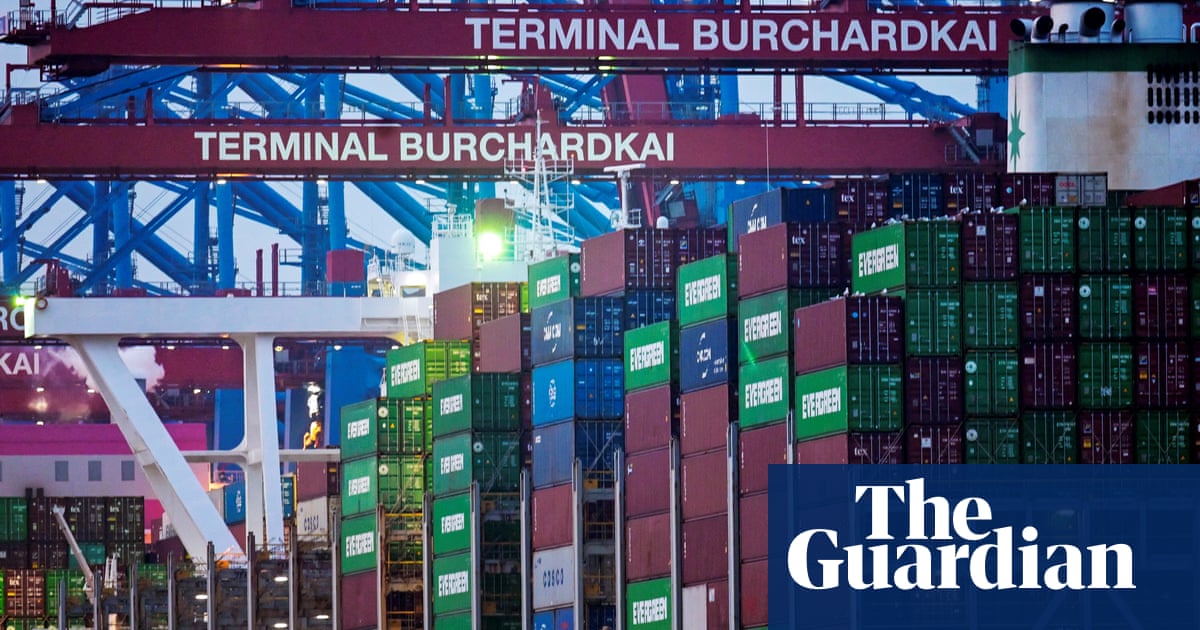Germany’s finance minister has joined a chorus of European politicians in calling for talks with the US after President Donald Trump threatened to impose 50% tariffs on imports from Europe starting next week.
Trump made the threat on Friday, saying“discussions [with the EU] are going nowhere”, adding that the tariffs would be applied from 1 June. Trump claimed he was “not looking for a deal”, repeating his longstanding view that European states had “banded together to take advantage of us”.
Lars Klingbeil responded on Sunday, saying: “We don’t need any further provocations, but serious negotiations”. The German finance minister told Bild newspaper that he had spoken with his US counterpart, Scott Bessent, about the matter, and warned “the US tariffs endanger the US economy just as much as the German and European economy”.
If imposed, the increase would dramatically raise Washington’s current tariff baseline levy of 10% to 50%, and fuel simmering tensions between two of the world’s economic heavyweights. Trump had previously paused threatened tariff hikes for three months to allow time for negotiations, giving trading partners until July to agree new terms.
The latest threat of a June hike sent stock markets into a tailspin on Friday, amid fears of renewed global economic disruption, with the US dollar also falling in value.
The EU is one of Washington’s largest trading partners, sending more than $600bn (£444bn) in goods last year and buying $370bn worth, according to US government figures.
Klingbeil reiterated Germany’s support for the EU in handling the talks with the US. “We as Europeans are united and determined to represent our interests,” he said.
The EU’s trade chief, Maroš Šefčovič, responded on Friday saying that the bloc was “committed to securing a deal that works for both” and that trade relations “must be guided by mutual respect, not threats”.
The Irish premier,Micheál Martin, warned of the consequences if such levels of tariffs were imposed. “This is a surprise, because there was a pause until early July,” he told RTÉ.
Sign up toBusiness Today
Get set for the working day – we'll point you to all the business news and analysis you need every morning
after newsletter promotion
“Everybody in theEuropean Unionis acting in good faith and wants a negotiated settlement with the United States.
“The trading relationship between the European Union and the United States is the most dynamic and largest in the world, so tariffs of that height or scale would be extremely disruptive and would create even wider disruption across the global economy.”
